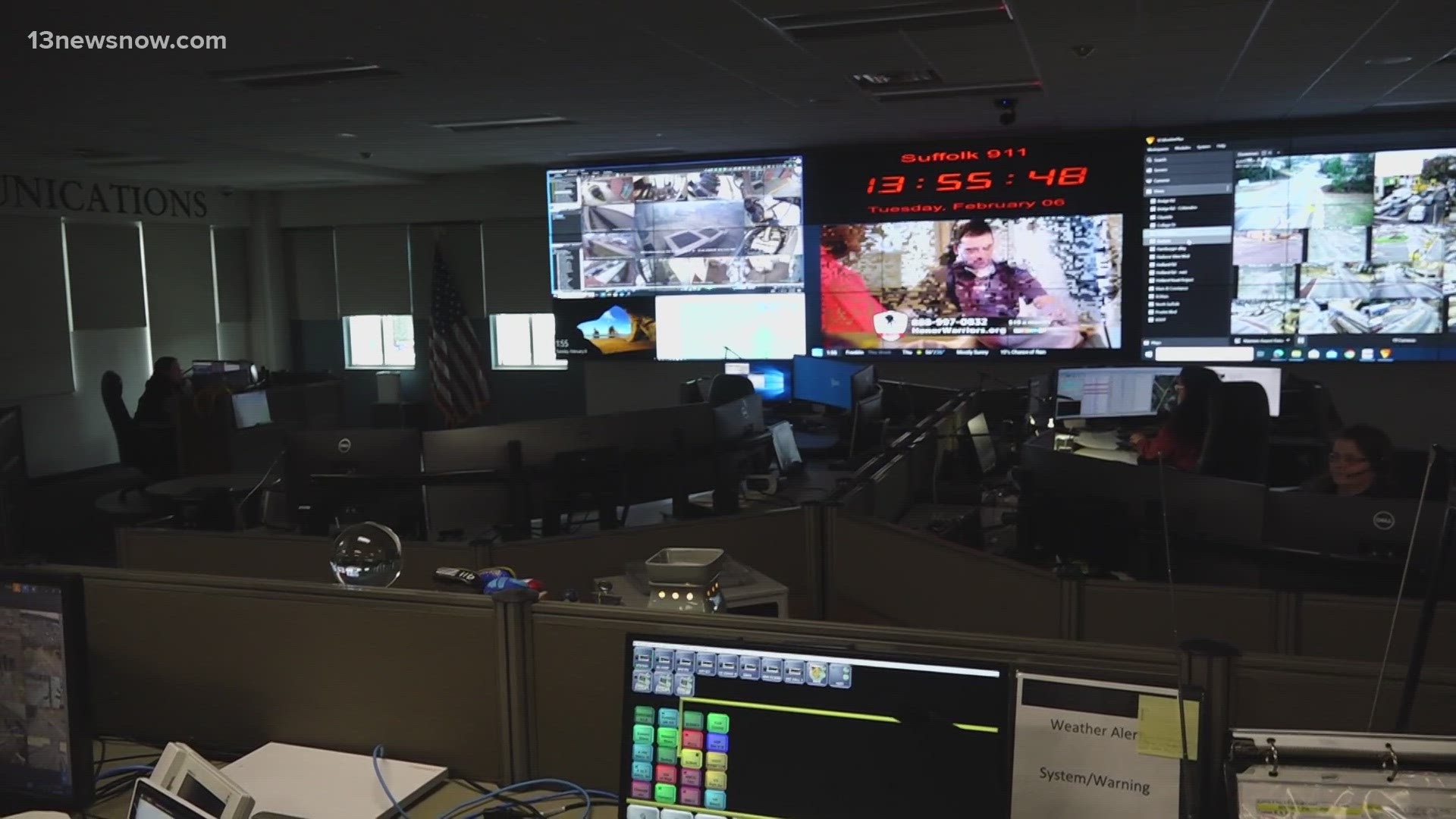SUFFOLK, Va. — The lights remain dim inside Suffolk's 911 call dispatch center, maintaining a sense of calm for a line work where those feelings can be in short supply.
Emergency dispatchers are often referred to as the "first" first responders, being the first point of contact between the general public's critical situations and the corresponding emergency responders.
Despite initiating the beginning stages of the emergency response process, 911 dispatchers are often not seen on an equal footing with fire departments, police officers or even Emergency Medical Services (EMS).
RELATED: Norfolk City Council votes on agreement to share emergency resources between Southside cities
“Right now dispatchers are considered more clerical instead of first responders, but the calls are much more intense than any clerical position there is. Like, a mom calling because their baby isn’t breathing and they need to perform CPR. [Other] clerical staff wouldn’t do that," Lt. Sandy Springle said, with the Suffolk Police Department.
Lt. Springle spent two days lobbying in Richmond for the passage of a slate of financial bills that would alter the benefits 911 dispatchers receive upon retirement.
With several duplicative versions of the push in both the House of Delegates and State Senate, according to a Fiscal Impact Statement for Senate Bill 472, the changes would empower local municipalities to:
"...allow[s] localities to make an irrevocable election of enhanced hazardous duty benefits for 911 dispatchers for service on or after July 1, 2025, on the same basis as enhanced benefits provided to other eligible employees for which the locality may have elected to provide hazardous duty coverage.
According to Lt. Springle, the bills would reduce the number of years required by emergency dispatchers to work before seeing retirement benefits, aligning the profession with that of firefighters and police officers.
“Our dispatchers would fall under the same benefits as firefighters, EMS, police, they would be able to retire with 25 years of service [minimum age of 50] instead of 30 years of service. Then they would get supplemental pay between when they retire versus when social security starts," Lt. Springle said.
The bills were "passed by" until 2025, which Lt. Springle said was not a surprise and another reminder that dispatchers are often not given the same credit and recognition as other first responders. She added that it's a lost opportunity to improve retention and recruitment for a field that's seeing shortages industry-wide.
“Am I surprised it didn’t pass? Unfortunately not," said Lt. Springle. "Our dispatchers don’t get the credit or recognition they deserve.”
The Fiscal Impact Statement also notes a recent JLARC report found "15 of the 50 states included 911 dispatchers under hazardous duty coverage."
Beyond state-level bills, there is a federal effort to reclassify 911 dispatchers as first responders to alleviate a nationwide shortage of call takers.

